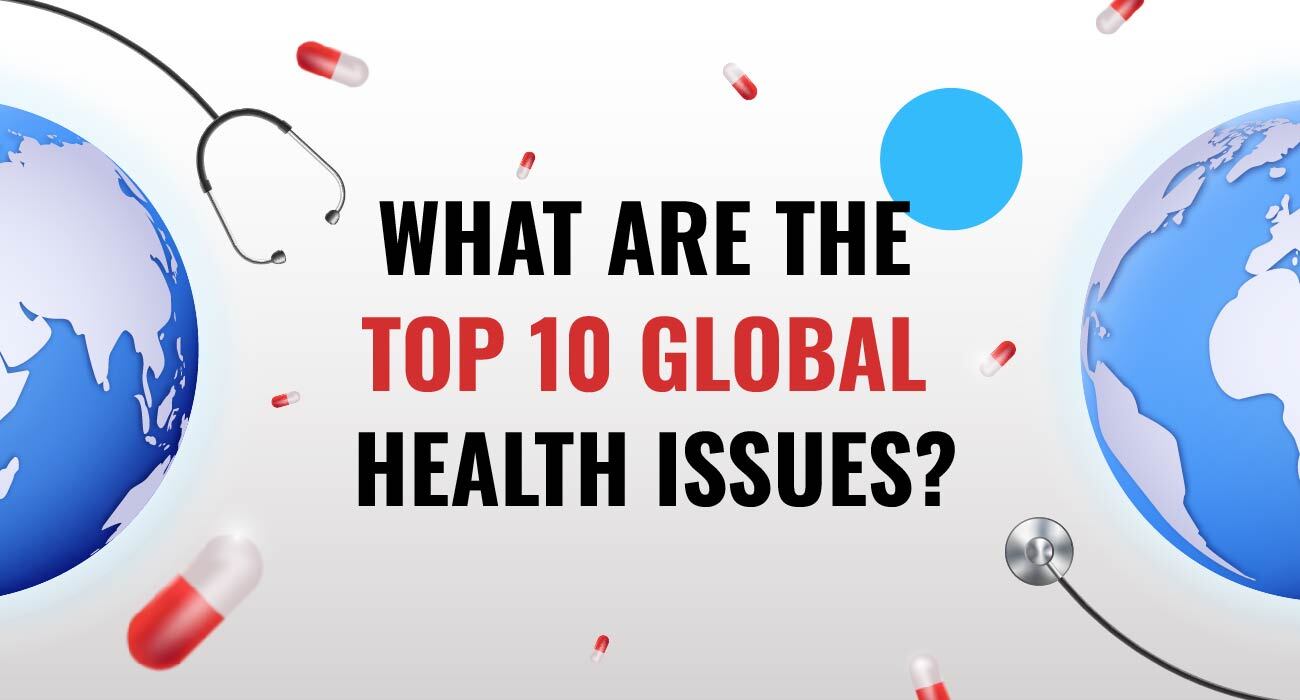In the top 10 global health issues, those diseases are included that have a worse effect on the human body. Some of the chronic global health issues are discussed below. You are also eligible to share your thoughts on global health issues and for this, you have to submit a guest post on health.
1. Road Injuries
Even now, injuries from traffic accidents are significant and avoidable. Road injuries are the main cause of death for those between the ages of 15 and 49.
2. Lower Respiratory Infections
Lower Respiratory Infections (LRIs), particularly those caused by influenza and respiratory syncytial virus (RSV), are the most common health problems that affect children and young adults.
Because of COVID-19 mitigation strategies including mask-wearing and social separation, you noticed an overall drop in influenza and RSV illnesses in 2020. Since these precautions have been loosened, a large number of young children who haven't been exposed to RSV in a few years are becoming infected, which is leading to epidemics of the virus.
3. Mental Health
Since 1990, there has been no discernible decline in the prevalence of mental diseases as a primary cause of disability globally.
Understanding how the COVID-19 pandemic, war, and violence have affected the prevalence and burden of mental disorders in 2022 and beyond, as well as how nations should be adjusting their mental health responses correspondingly, remain top priorities in the field of mental health.
4. Cardiovascular Disease
"Accounting for 28% of all fatalities in 2021, cardiovascular disorders, including ischemic heart disease and stroke, are the major causes of mortality worldwide. Furthermore, a significant portion of health loss and the financial strain on healthcare systems are caused by cardiovascular illnesses.
By addressing modifiable cardiovascular risk factors such as high blood pressure, high cholesterol, obesity, dietary hazards, smoking, and air pollution, the majority of cardiovascular diseases can be avoided.
5. Health Systems Strengthening
One essential component of creating resilient health systems is continuing to strengthen health systems throughout the world. This will be especially important when nations redirect their attention and resources during the COVID-19 pandemic's acute phase.
6. Dementia
The importance of dementia for public health will be highlighted by the projected trends in population ageing and growth, which are predicted to result in significant increases in the number of dementia cases worldwide.
Appropriate planning for the required support and services is crucial to provide dementia patients with proper care.
7. Diabetes
The best options seem to be population-based interventions like health education expansion to combat diabetes risk factors along with more tax and incentive programmes, more informative food labels, better-built environments to encourage exercise, and increased advocacy to educate people about the risks associated with diabetes. Policies that attempt to prevent weight gain and enhance the quality of food are also quite important.
8. Population Ageing
The percentage of the population over 65 is predicted to rise globally in the upcoming years. Although childhood diseases have traditionally received a lot of attention, it will be wise to start considering and methodically preparing for some of these impending changes in demography as well, particularly in low- and middle-income nations.
9. Poverty’s Role in Health
Climate change and rising rates of violence have led to an increase in the unequal allocation of resources. Health outcomes in low- and middle-income countries are worse than in high-income countries: life expectancy is 34 years lower, under-5 mortality is approximately 100 times higher, suicide and interpersonal violence deaths are 30 times higher, and antimicrobial resistance (AMR) deaths are 12 times higher.
10. Impact of Climate Change
Millions of people's health is already being impacted by climate change worldwide, but more significantly, the effects of climate change will only get worse over this century. People are feeling the many indirect consequences of excessive heat in addition to the direct effects that you assess in the GBD.
Storms and droughts can influence the availability of food and water, flooding can force people from their homes and have a negative impact on their mental health, and wildfire smoke outbreaks can worsen air pollution.



